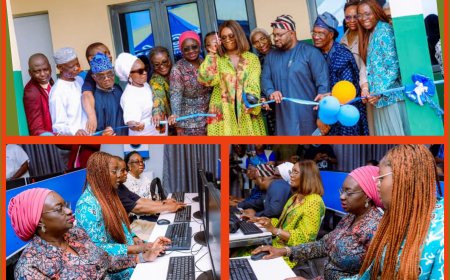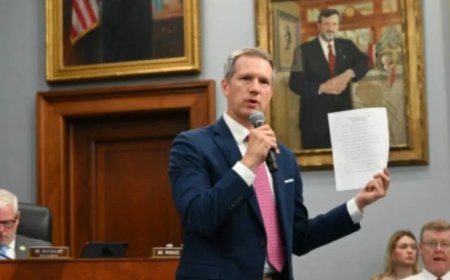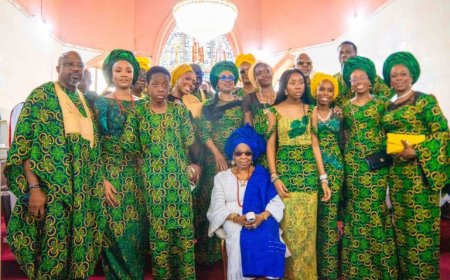OPINION Ganiu Okunnu: A Crisis Management Analysis of the 2025 Online JAMB Exam Glitch
In this Opinion Article, Ganiu Okunnu (PhD), a Strategic Communication Scholar who is also a staff of the Faculty of Communication and Media Studies, Lagos State University, (LASU) takes a birds eye view look at the nagging national issue of technical glitch in the 2025 UTME Examinations.

By: Ganiu Okunnu PhD
Crisis constitutes a critical moment in the life of any individual, organisation or nation. It attempts to or actually threatens activities and existence of every thriving business or organisation.
According to crisis management experts, though crisis comes with the intent of disrupting the existence of an organsiation, it also brings unique learning opportunities that strengthens the affected organisation. It is a matter of when, not if, an organization will face a crisis.
The Nigeria’s university entrance examination body, Joint Admissions and Matriculation Board (JAMB) is currently having a taste of its worst crisis since its establishment in 1978. The recent technical glitch caused by skipped software patch is a testimony to the fact that no matter how well prepared an organisation is, it is vulnerable to crisis.
Please permit me to condole with the family of the lady who took her life in Lagos due to the JAMB incidence. Equally, my sympathy to all Nigerians who experienced distress due to the unforeseen challenge. We can only be patient and have faith in the leadership of the Board, which has demonstrated rare courage, honesty and transparency in resolving the issue.
Since his assumption of duties as JAMB Registrar in 2016, Prof. Ishaq Oloyede has reassured many Nigerians that the nation’s university entrance examination body under his watch will be characterised by transparency. This he has demonstrated by his continued remittance of profits to the nation’s coffers, his numerous fool-proof innovations and prompt response to issues all aimed at repositioning JAMB to actualise its founding objectives.
A cursory glance across the world reveals that the 2025 exam glitch incident is not peculiar to Nigeria. Similar incidents had been experienced in other parts of the world including the United kingdom’s exam debacle that took place in 2020, the Florida’s online testing system glitch in 2015, electronic system problems in Egypt in 2019 and a host of others. All these incidents provided unique learning opportunities for the affected institutions and nations to become better in managing online exams. I am confident that this incident will strengthen JAMB and our educational system in the use of online technology for exams and other conducts.
As stated earlier, crisis is an integral part of every organisation, its occurrence affects the activities and reputation of the organisation and its leaders, but it also strengthens their coping mechanism and innovative capacity. The Chinese word for crisis is Wei Ji 危机 Wei means crisis while Ji means opportunity. In the ancient Chinese philosophy, opportunities often arise from crisis. What opportunities do we expect from this incident?
As exemplified by the inspiring character of its registrar, JAMB has admitted responsibility for the technical glitch with Prof. Oloyede accepting blames for the negligence, failure and unexpected errors from the incident. That is the first step towards any effective crisis resolution. Responsible leadership is a key requirement in any crisis management. It is based on genuine assessment of situation and taking decisive action. In line with Attribution theory, accepting responsibility for errors leading to a crisis is a not a weakness rather a key strength that only a few possess, kudos to Prof. Oloyede.
Rather than pointing at imaginary enemies to evade responsibilities, Prof. Oloyede admitted the errors and announced measures to ensure that affected students retake the exam. What an exemplary leadership in a nation where most leaders will arrogantly fail to admit errors and refuse to provide remedies. Calls for his resignation have continued to fill the airwaves. The incident provided a perfect cover for his critics to take pound of flesh from Prof. Oloyede who they felt should be sacrificed. This is the harm that crisis does to organisation, reputation damage. For leaders who have built their profile, yes, crisis is a terrible period and it leaves terrible marks on them, but this time shall pass and they will become better. In testimony of his reputational currency, the calls for his removal are being neutralized by vocal supports for his performance by well-meaning Nigerians and well-established institutions who have firm belief in his leadership and positive transformation witnessed in JAMB under his watch. Prof. Oloyede, this time shall pass.
As stated earlier, the 2025 JAMB crisis will fade away, but it passes a strong message to the wise. If an organisation that is well managed like JAMB experienced this crisis, what do we say of other public service organisations?
Leaders of other public service organisations in Nigeria would be wiser to take a cue from the JAMB incident and plan very well for their own storm which will eventually happen. How efficient have they been on their turf? What’s the level of transparency that they have exhibited? How public friendly? This checklist has been fairly fulfilled by JAMB, yet a section of the public remains stubbornly unappreciative. The communication experts for JAMB have done well, not only during this raging crisis, but before now in articulating the Board’s well meaning disposition and real actions. The real challenge however is the mega plurality of communication platforms seemingly availing some otherwise uninformed and bigoted minds all the visibility that accrued to them. The lesson therefore lies in the need for organisations to reckon properly with dynamics of public communication playing out by the day.
Organisations must therefore be proactive by allocating enormous resources to the trendy training of their staff to handle crisis when it occurs. Today, it is JAMB. Whose turn tomorrow is difficult to tell. Just thinking aloud for the peace that we all desire to have.
*Dr Ganiu Okunnu, a Strategic Communication Scholar, a staff of the Faculty of Communication and Media Studies, Lagos State University, is a first generation alumnus of the LASU School of Communication, now FCMS.
What's Your Reaction?
























































